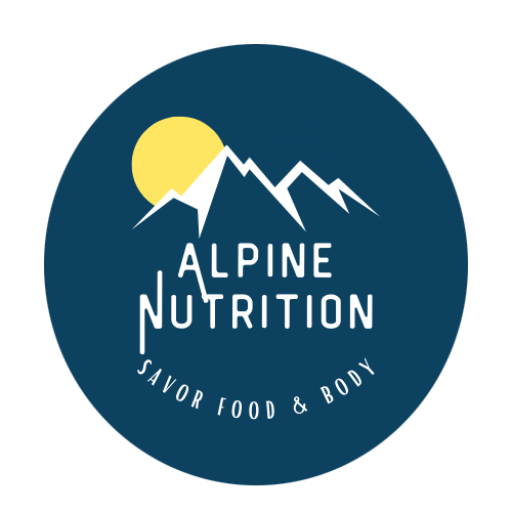If you’re going through perimenopause and menopause right now, what word(s) would you use to describe your life and how you feel in your body? Are you worried about bone health, or weight gain, think you have dementia because your brain fog is so bad? What about heart health and insulin resistance? There are so many health concerns that can keep you up at night! Let’s tackle one of those – building strong bones.
The two words I use to describe my perimenopause experience (I’m in the thick of it!) are embrace and spicy 🙂

To embrace this new season of life, we have to let go of what isn’t serving us – like food rules, diet mentality, lifestyle habits, relationships, and maybe even where we live!
The first time I saw The Bike Guy he said, “How’s the wind out there?”
I was on my way home from a bike ride, riding past his house. Nice guy, I thought, but why does he care about the wind and me on a bike?
When I finally figured out who he was, a bike mechanic, it took me another 6 months before I decided to try his bike mechanic services.
I dug my feet in hard not wanting to let go of my current bike mechanic and my life in Seattle. It’s what I was used to. I didn’t want to change. But I was tired of living between two states and two houses. It was time to let go.
The menopause is the unraveling and remodeling of who you were and who you want to be. But don’t lose strong bones and muscles while you’re remodeling!
Musculoskeletal syndrome affects 70% of women in midlife.
Symptoms are impacted by fluctuating and eventual drop in estrogen during perimenopause.
Symptoms may include musculoskeletal pain, joint pain, loss of lean muscle mass, loss of bone density with increased risk of fractures and ligament injury, and the progression of osteoarthritis.
Researcher Dr. Douglas Paddon-Jones (1969-2021) is known for his work on skeletal muscle preservation, sarcopenia prevention, and well-being in aging.
According to his decades of research, a “Protein threshold” of about 30 grams of protein per meal promotes muscle protein synthesis in older adults.
He also noticed that about 30 gm of protein per meal increased satisfaction and satiety.
However, more isn’t better!
Dr. Paddon-Jones’s research showed that excess protein intake was likely to be oxidized to be used for energy or stored if the energy wasn’t needed.
What can you do to support bone health with your day-to-day eating?
Aim for about 20-30 grams of protein per meal. Start your day with a protein-rich breakfast to enhance muscle protein synthesis and increase net daily muscle protein synthesis by 25% with the same total daily protein intake.
Try to be consistent with physical activity most days – especially resistance training.
Dr. Paddon-Jone’s research showed resistance exercise, and more protein in the morning can boost in lean body mass compared to only increasing protein intake.
Strength training with heavier weights in low repetition sets to increase muscle power.
What about hormone replacement therapy? Will it help reduce musculoskeletal symptoms?
HRT/MHT may help reduce the risk of musculoskeletal health decline, but only with lifestyle habits like resistance exercise and adequate protein intake at most meals.
Other nutrients that can benefit musculoskeletal health after 40 include magnesium, vitamin D, and vitamin K

What if you’re worried about weight gain? Doesn’t increasing protein intake mean increasing calories?
I get it. One morning you woke up and didn’t recognize your body after suddenly gaining 20, 30, 40, or more pounds seemingly overnight. But here’s the deal.
If your goal is to be healthy and strong through perimenopause, menopause, and into your 80s, intentional weight loss will work against that goal. Here’s what the research says.
Based on current research on weight loss and body composition, you can’t choose to lose your “meno belly” without losing lean body mass like muscle at the same time – even with increased protein intake.
This randomized clinical trial asked postmenopausal women to either severely or moderately reduce their calories for 12 months.
The group who severely restricted their calories saw twice the amount of weight and fat loss, about 1.5 times as much loss of lean body mass (muscle), and about 2.5 times as much hip bone density loss compared to the group of women who moderately restricted their calories.

You can’t cut calories and assume you’ll only lose body fat.
You’ll also lose muscle and bone density which are the two biggest concerns when it comes to musculoskeletal health in midlife.
I get it. Weight concerns are one of the most distressing symptoms of perimenopause.
I’m not against the pursuit of intentional weight loss if that’s what you need. Body changes and weight stigma are stressful! But be careful what you ask for!
As a dietitian and nutrition counselor who cares about your long-term well-being, it’s important to share with you the evidence-based risks of pursuing intentional weight loss during perimenopause and menopause.
If you decide to let go of the diet mentality and embrace new musculoskeletal health-promoting habits like eating adequate protein and including consistent resistance training, here’s a quote to help you get started…
“Every new beginning comes from some beginning end.”
Semisonic “Closing Time”
Want to improve your bone health with behavior-based nutrition goals? Add your name to the waitlist for my new 4-week intuitive eating course.
The course will walk you through the step-by-step approach I created for my 1:1 clients to help them get out of the diet cycle and quickly make confident food choices that align with their “why.”




